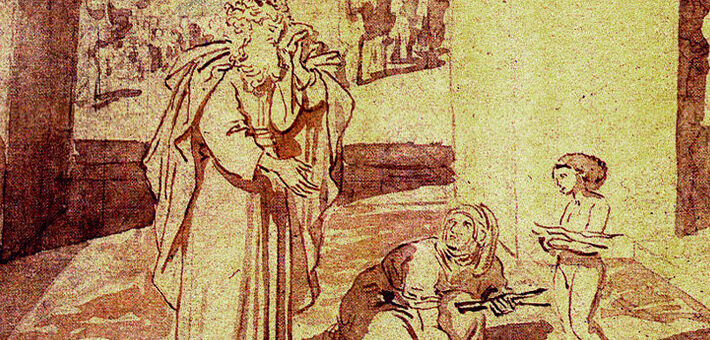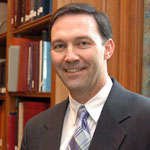Commentary on Psalm 30
Psalm 30 is a song of thanksgiving. That label is appropriate for two reasons.
First, and most generally, gratitude for God’s deliverance is the psalm’s dominant theme. In nearly every line the psalmist either expresses thanks and praise for God’s deliverance or describes the circumstances of that deliverance.
Second, the language of the psalm is related to descriptions of the thanksgiving offering. The psalm ends with a term translated “I will give thanks” (verse 12) that refers in some other contexts to a ceremony of thanksgiving. The verb used here derives from the same root as the term for “thanksgiving offering” (Leviticus 7:12). Similar language appears in passages that portray such a ritual of thanks (see Jeremiah 33:11). Hence, Psalm 30 is a full expression of praise and it was likely composed as part of a larger offering of gratitude that included tangible signs of thanksgiving.
Psalm 30 is cast as the prayer of an individual, which is fitting if it served as the liturgy that accompanied the thanksgiving offering. But the superscription identifies the psalm with a communal event, “the dedication of the temple.” Rabbinic tradition links the psalm specifically to the Feast of Dedication that recalls the cleansing and restoration of the temple after Antiochus IV Epiphanes defiled it (see 1 Maccabees 4:52; 2 Maccabees 10). Nothing in the psalm suggests that event was the specific occasion of its composition.
But the Psalter in many other places uses the voice of the individual to express the thanksgiving and praise of the community (see Psalms 129, 130, 131). This setting in public worship reminds us that biblical faith and prayer always have a communal dimension regardless of how personal the subject of prayer may be. Individuals do not pray completely in private; likewise the community’s concerns are shaped and expressed by the concerns of those individuals within it.
Psalm 30:1-3 begins the psalm with a declaration of praise (“I will extol you, Lord”) and a testimony to God’s saving actions (“you have healed me;” “restored me to life”). These verses therefore set forth the purpose of the psalm as a whole and sum up the primary message about God’s relationship with the one who prays. As the psalm develops it becomes apparent that the main point about God’s action is that God delivered the psalmist from the clutches of death and restored him or her to the land of the living.
Verse 4 again calls for praise not just from the psalmist but also from “his faithful ones.” This expression points to the communal setting of the psalmist’s prayer and to the complex interaction of individual and community. The reason for praise, stated in verse 5, echoes one of Israel’s creedal affirmations about God, the claim that he is “slow to anger, abounding in steadfast love” (Exodus 34:6). The emphasis here, however, is not on God’s restraint of divine anger but on God’s quick release of wrath.
Nevertheless, in nuances of this point the accent is on God’s favor which trumps God’s desire to punish. Some scholars believe the reference to night and morning reflects an original setting in an ordeal the psalmist endured in a sanctuary or the temple. The conclusion of the ordeal would have been the receipt of a proclamation of innocence. Regardless of whether this is correct or not, the movement from night to morning symbolizes the experience of weeping that gives way to joy (verse 5b), or mourning that turns to dancing (verse 11).
Verses 6-12 include a narrative-like report of God’s salvation of the psalmist that expands on the declaration of healing and deliverance that opened the psalm. In verses 6 and 7 the psalmist recounts how he or she boasted of being secure, but came to recognize that true security comes only from God. The term rendered “prosperity” might better be rendered “confident state.” The same word appears in Psalm 73:12 to describe the state of mind of the wicked, those who foolishly believe their resources provide all they need or that their fortune is a sign of God’s favor.
The psalmist has learned that real security comes from the Lord’s presence, which is a sign of God’s grace. Knowing that presence, the psalmist testifies that God made the psalmist “as a strong mountain” (verse 7a). Just as easily God could hide his face and the psalmist’s favorable circumstances would be gone. In such knowledge the psalmist has now learned to live always in thankfulness for the Lord’s goodness.
The next three verses reveal that death is the main threat from which the psalmist seeks deliverance. The main problem with death, however, is not simply the cessation of life. The Psalter and the Old Testament recognize mortality as part of being human (see Psalm 90:3-10). Rather, death here is personified as a force that threatens the living. The psalm speaks of death in association with a descent into Sheol or the Pit, the abode of the dead (verses 3, 9).
For the psalmist the threat of the abode of the dead is that it is a place of silence where God is not praised (“will the dust praise you?” verse 9b). To praise God and to give thanks has become for the psalmist the vocation of the human being and the sole purpose of the creation. Any fore that prevents praise must be resisted. Hence the psalm anticipates the New Testament idea that death is the final enemy (as in 1 Corinthians 15:26).
The psalm ends with an expression of desire to praise God (“that my soul may praise you”) and a declaration of thanksgiving (“I will give thanks to you forever”). The dominance of this theme of thanks and praise, with its individual and corporate expression, testifies to the central importance of this expression to authentic worship. Prayer and worship are diminished if they only contain petition and general expressions of praise. To be exercised fully they must also include praise and thanksgiving that specifically respond to God’s salvation that has been asked for and that God has granted.


June 9, 2013